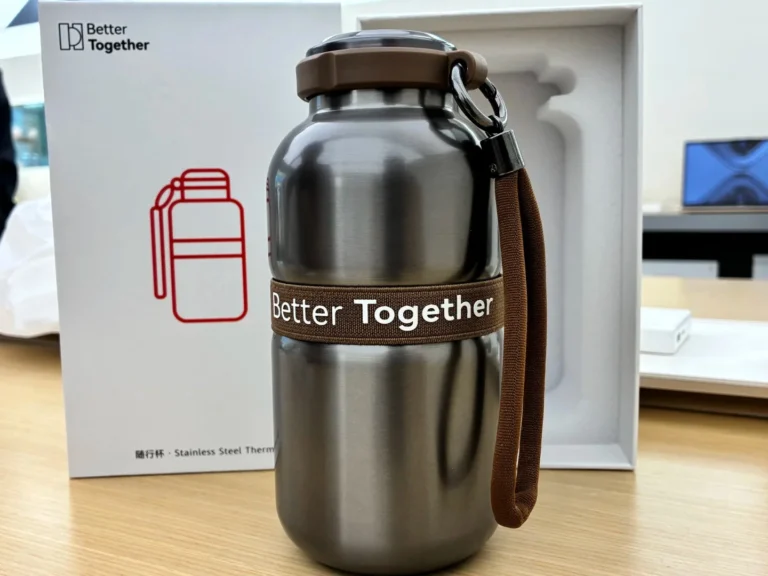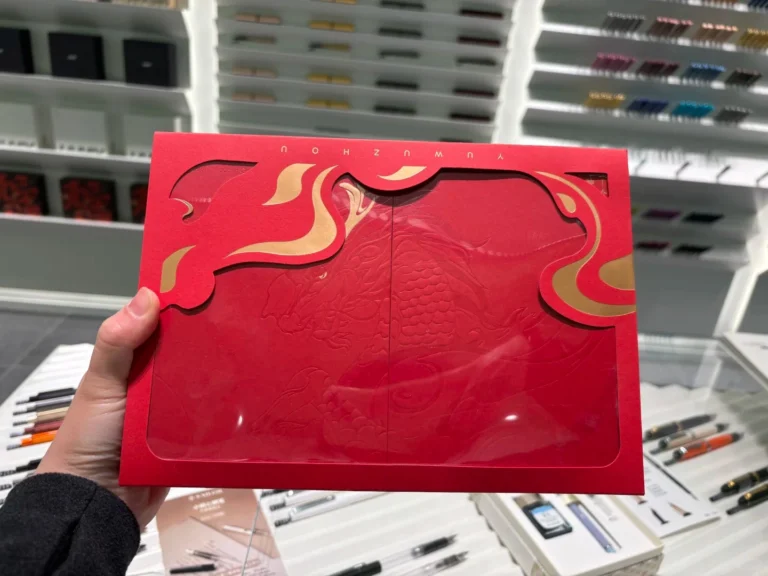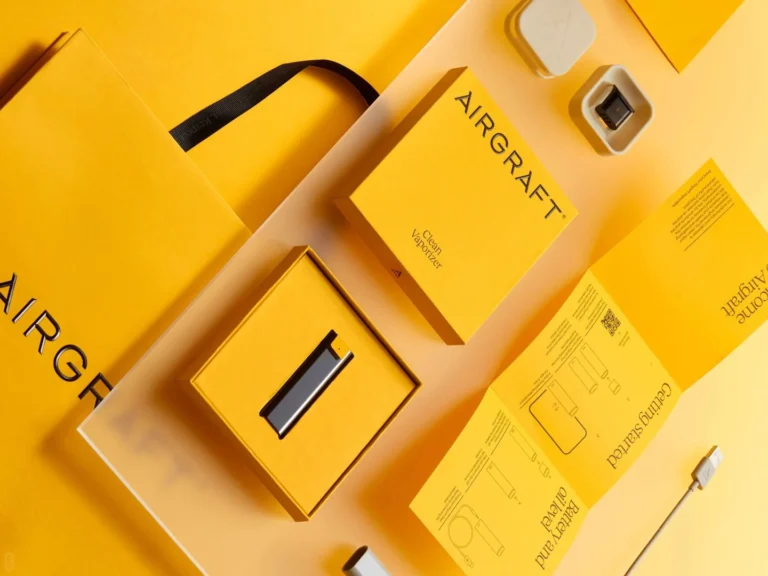Introduction: The Power of Corporate Gifts
In the modern business landscape, corporate gifts have transcended their traditional role as mere tokens of appreciation. They have become strategic tools to foster client loyalty, strengthen employee engagement, and enhance brand reputation. As companies worldwide adapt to new market dynamics and evolving customer expectations, understanding the nuances of corporate gifting is more crucial than ever.
Corporate gifts offer a tangible expression of gratitude, recognition, and value. They are not just objects—they are statements of a company’s ethos, culture, and commitment. Businesses are exploring innovative ways to make their gifts more personalized, sustainable, and impactful, aligning with both corporate values and global trends.
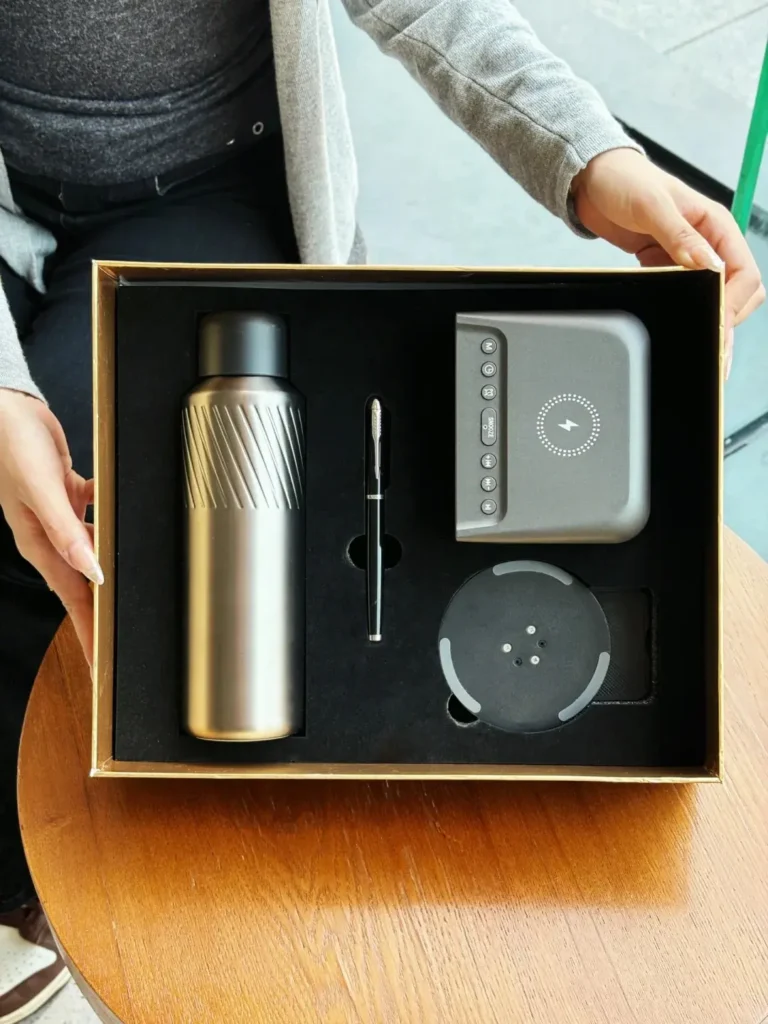
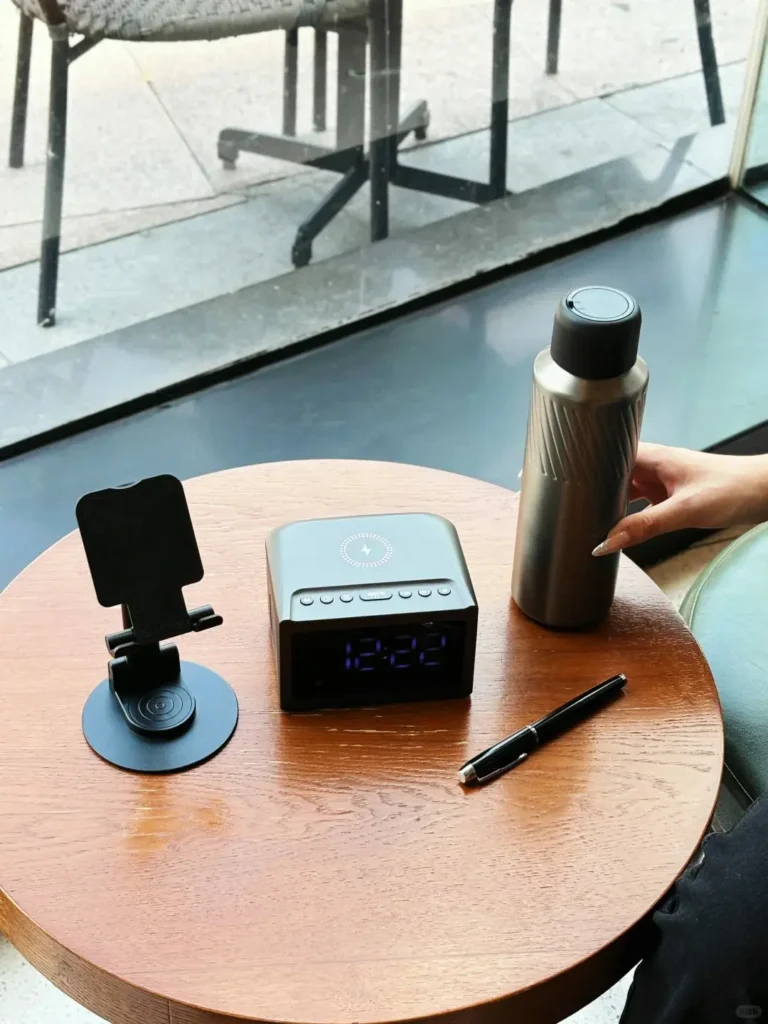
Why Corporate Gifting Matters in Today’s Business World
Strengthening Client Relationships
A well-chosen corporate gift can significantly enhance client relationships. In an era where competition is fierce, and customer loyalty is hard to secure, gifts serve as an emotional bridge between the company and its clients. Personalized gifts demonstrate attention to detail, understanding of client preferences, and genuine appreciation for their partnership.
For instance, luxury branded items such as high-quality leather accessories or custom engraved timepieces are not merely luxurious—they communicate a level of thoughtfulness that leaves a lasting impression. By aligning gifts with a client’s professional or personal interests, companies can foster deeper, long-term connections.
Enhancing Employee Engagement
Corporate gifts are equally powerful tools for employee recognition and motivation. Research indicates that employees who feel valued are more productive, loyal, and engaged. Personalized gifts, milestone rewards, and experience-based incentives reinforce a sense of belonging and appreciation.
From sleek tech gadgets to curated wellness packages, companies are investing in thoughtful gift strategies that cater to employee needs. These gestures go beyond monetary rewards—they build a culture of respect, acknowledgment, and emotional engagement within the organization.
Branding and Marketing Impact
Corporate gifts also serve as subtle yet effective marketing tools. Branded merchandise, limited-edition items, and uniquely designed products act as walking advertisements, extending the company’s reach beyond traditional channels. A high-quality gift that resonates with recipients can spark conversations, social media mentions, and positive associations with the brand.
The key is authenticity. Recipients can easily detect generic or mass-produced gifts. The modern corporate gifting strategy prioritizes meaningful, useful, and memorable items over sheer quantity or cost.

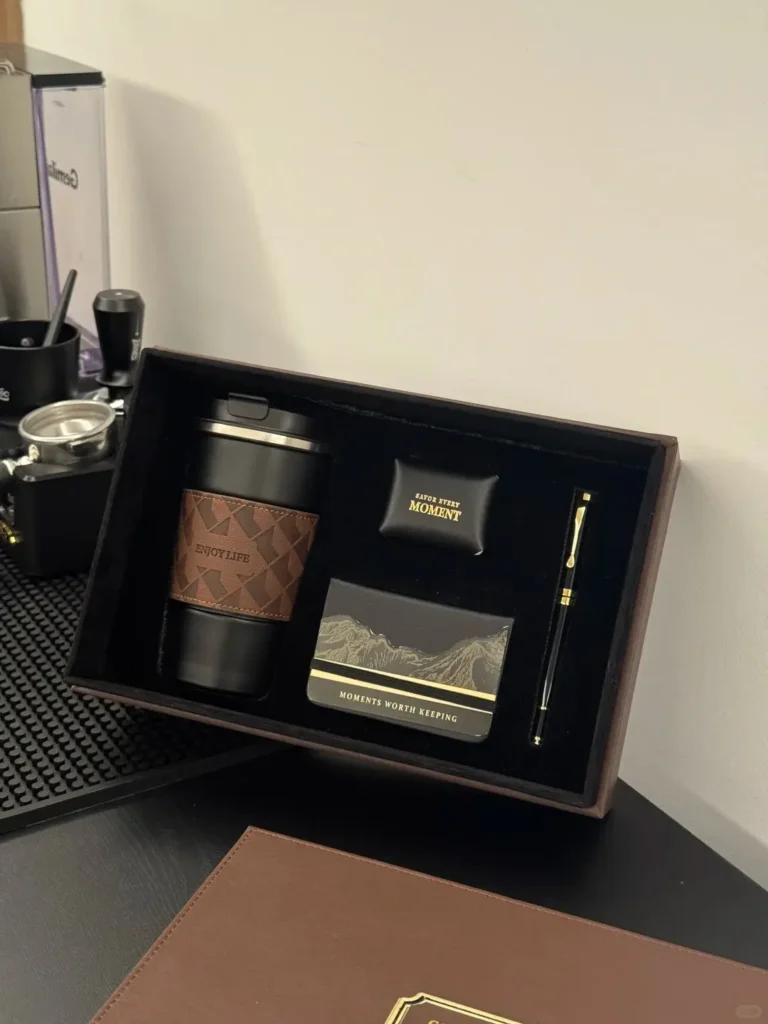
Corporate Gifting Trends
Personalization Is Key
Personalized corporate gifts have become the gold standard. Today’s recipients expect gifts that reflect their individuality, professional achievements, or personal interests. Customization options range from engraved names and initials to tailored gift bundles that align with lifestyle preferences.
For example, a corporate gift for a client in the luxury watch industry might include a bespoke leather watch roll, engraved with their initials, alongside a curated selection of watch care products. This level of personalization elevates the perceived value and demonstrates careful consideration.
Emphasis on Sustainability
Sustainability is no longer optional—it is essential. Corporations are increasingly mindful of their environmental footprint, seeking eco-friendly gifts that align with global sustainability goals. Recyclable packaging, ethically sourced materials, and zero-waste production practices are now integral to corporate gifting strategies.
Popular sustainable gifts include reusable water bottles, bamboo office supplies, organic skincare sets, and plant-based wellness kits. These items not only reflect a commitment to environmental responsibility but also resonate strongly with clients and employees who prioritize green living.
Experience Over Material Goods
Another prominent trend is gifting experiences rather than traditional items. Experiential gifts, such as gourmet cooking classes, spa vouchers, travel experiences, or exclusive event access, create lasting memories that tangible objects often cannot.
Experiences are particularly effective in reinforcing client relationships, as they provide shared moments that go beyond transactional interactions. Companies are increasingly blending material and experiential gifts, offering curated packages that combine luxury items with unforgettable experiences.


Crafting the Perfect Corporate Gift Strategy
Understanding Your Audience
A successful corporate gifting strategy begins with audience analysis. Companies must understand the demographics, interests, and professional roles of recipients to select meaningful gifts. A tech-savvy employee might appreciate a cutting-edge gadget, while a health-conscious executive might prefer a wellness-focused gift bundle.
Segmenting audiences and tailoring gifts accordingly ensures relevance and increases the likelihood of positive reception. Data-driven insights and customer feedback can guide selection, helping companies avoid generic gifts that fail to resonate.
Timing and Presentation Matter
Timing and presentation are critical components of effective corporate gifting. Sending gifts during milestone moments—such as anniversaries, successful project completions, or holiday seasons—maximizes impact.
Equally important is presentation. High-quality packaging, elegant wrapping, and personalized notes enhance perceived value. Studies show that a well-presented gift can increase recipient satisfaction by over 50%, turning a simple gesture into a memorable experience.
Balancing Cost and Value
Corporate gifting does not mean excessive spending. It is about delivering perceived value. Businesses should balance budget constraints with thoughtful selection to achieve maximum impact. Personalized, sustainable, or experiential gifts often provide higher perceived value than expensive, generic items.
By prioritizing creativity, relevance, and quality over cost, companies can develop a gifting strategy that is both economically sound and highly effective in strengthening relationships.
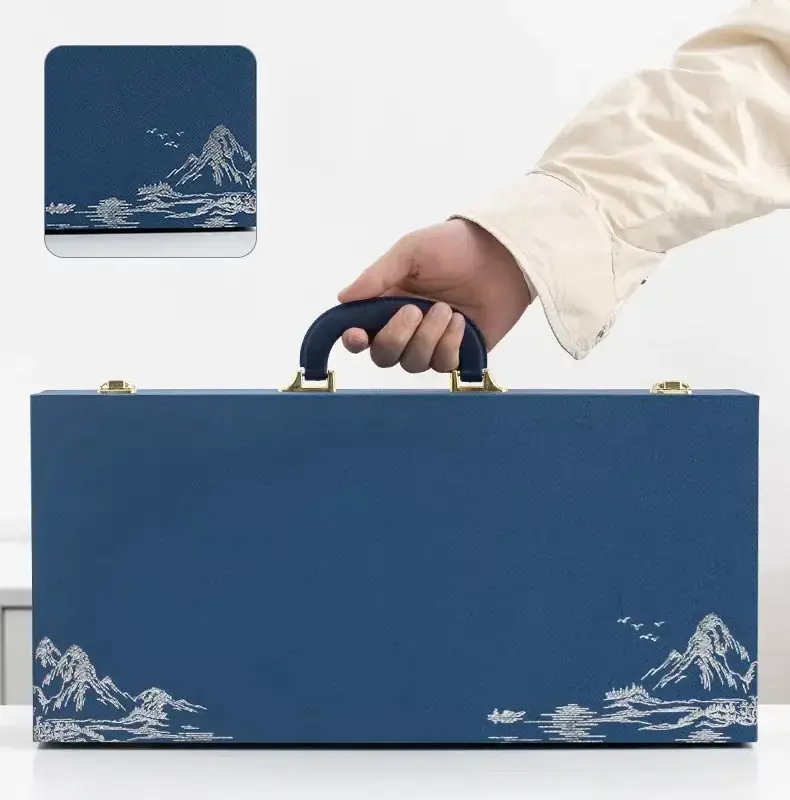
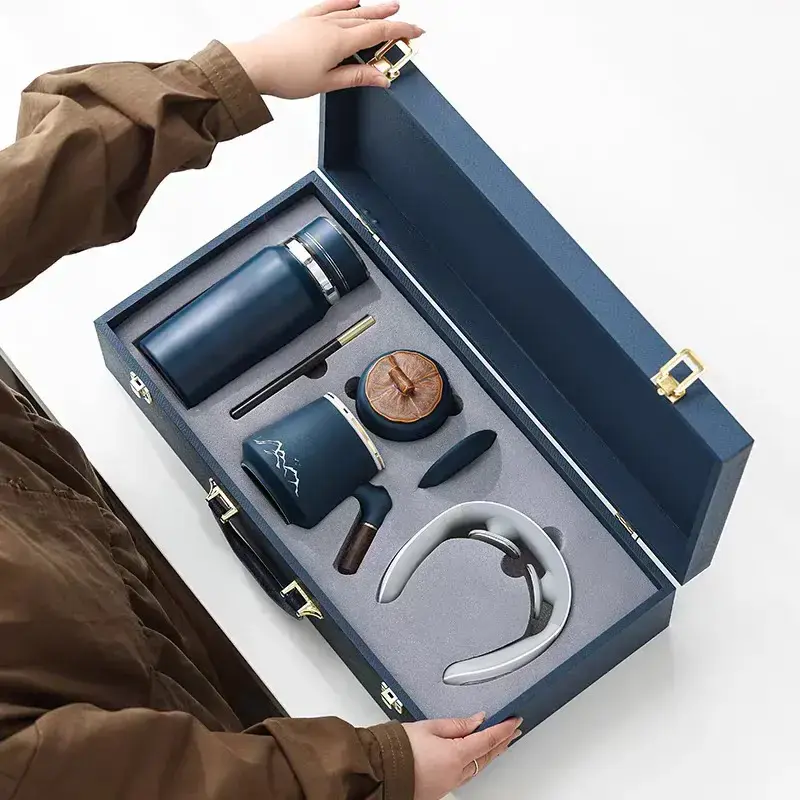
Popular Corporate Gift Categories
Luxury Accessories and Stationery
High-end accessories—such as leather notebooks, designer pens, and custom tech organizers—remain popular. These items convey sophistication, professionalism, and attention to detail, making them ideal for executive clients or high-performing employees.
Wellness and Lifestyle Gifts
Corporate wellness gifts have grown in popularity. From premium yoga mats and aromatherapy kits to personalized nutrition plans, these items promote health, balance, and mental well-being, aligning with the growing emphasis on employee wellness programs.
Technology and Gadgets
Cutting-edge technology gifts—like wireless chargers, noise-canceling headphones, smart home devices, and AI-powered tools—are highly sought after. They cater to tech-savvy professionals and demonstrate a forward-thinking, innovative brand image.
Sustainable and Eco-Friendly Gifts
Sustainable gifts are increasingly essential. Bamboo desk organizers, reusable travel kits, organic snack boxes, and solar-powered devices reflect environmental responsibility while remaining highly practical.
Customized Gift Sets
Curated gift sets that combine multiple elements—such as luxury stationery, gourmet treats, and branded accessories—offer a holistic and memorable experience. Customization allows companies to tailor sets to recipient preferences, creating an exclusive and premium feel.
Measuring Corporate Gifting Success
Feedback and Surveys
Collecting recipient feedback is crucial to refining gifting strategies. Surveys can reveal satisfaction levels, preferences, and areas for improvement. Insightful feedback helps companies understand which gifts resonate most and informs future selections.
Business Outcomes
Corporate gifting should also be assessed based on business impact. Metrics such as client retention, employee engagement, brand recognition, and social media engagement provide tangible evidence of success. Companies that integrate gifting into broader marketing and HR strategies can measure return on investment more effectively.
Continuous Improvement
Corporate gifting is not static. Trends evolve, recipient expectations change, and company goals shift. A successful strategy requires continuous evaluation, innovation, and adaptation to stay relevant, meaningful, and impactful.
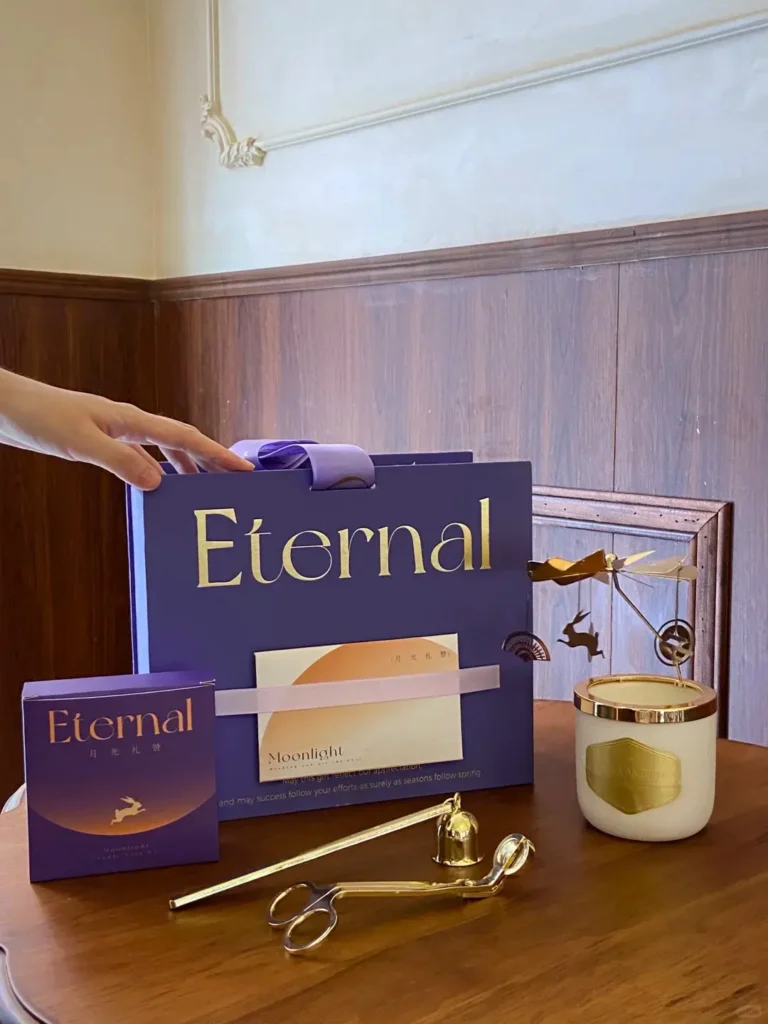
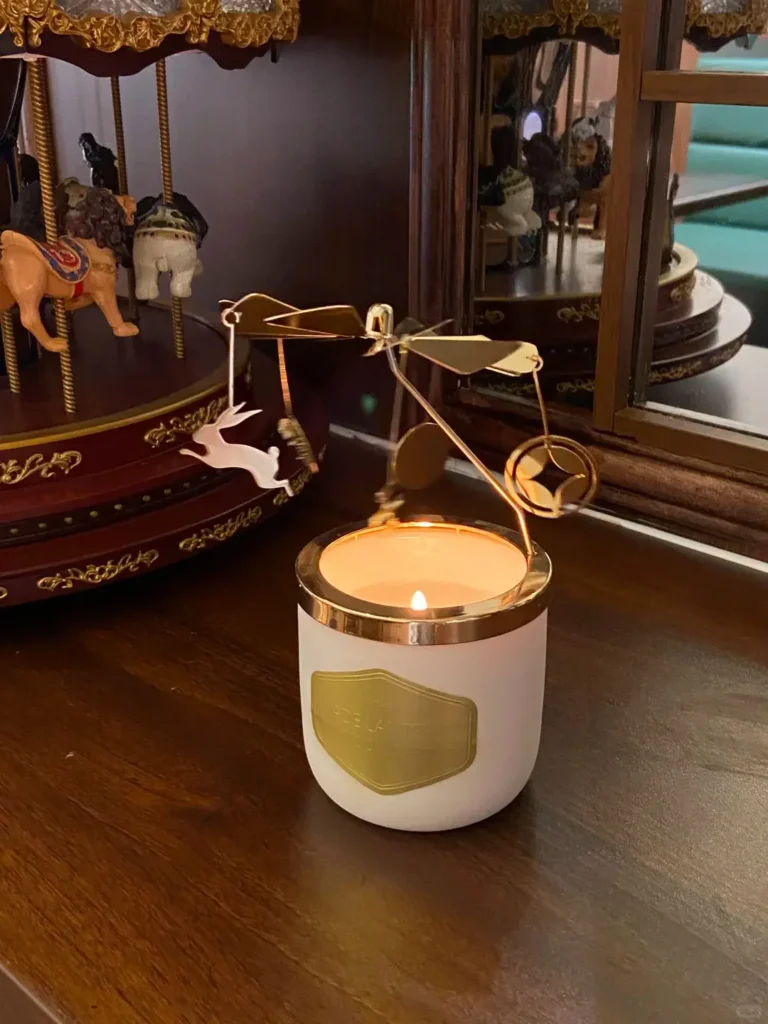
Conclusion: The Future of Corporate Gifting
Corporate gifting is a sophisticated blend of personalization, sustainability, and experiential value. It transcends traditional transactional gestures, becoming a strategic tool to foster relationships, enhance employee engagement, and strengthen brand image.
By understanding audience preferences, embracing sustainability, and focusing on meaningful experiences, companies can craft gifts that leave lasting impressions. The ability to give thoughtful, relevant, and memorable gifts remains a key differentiator in building long-term success.
Corporate gifting is no longer optional—it is essential. Companies that invest in well-designed gifting strategies will not only nurture stronger relationships but also enhance their reputation, drive loyalty, and create a culture of appreciation that resonates across all stakeholders.

